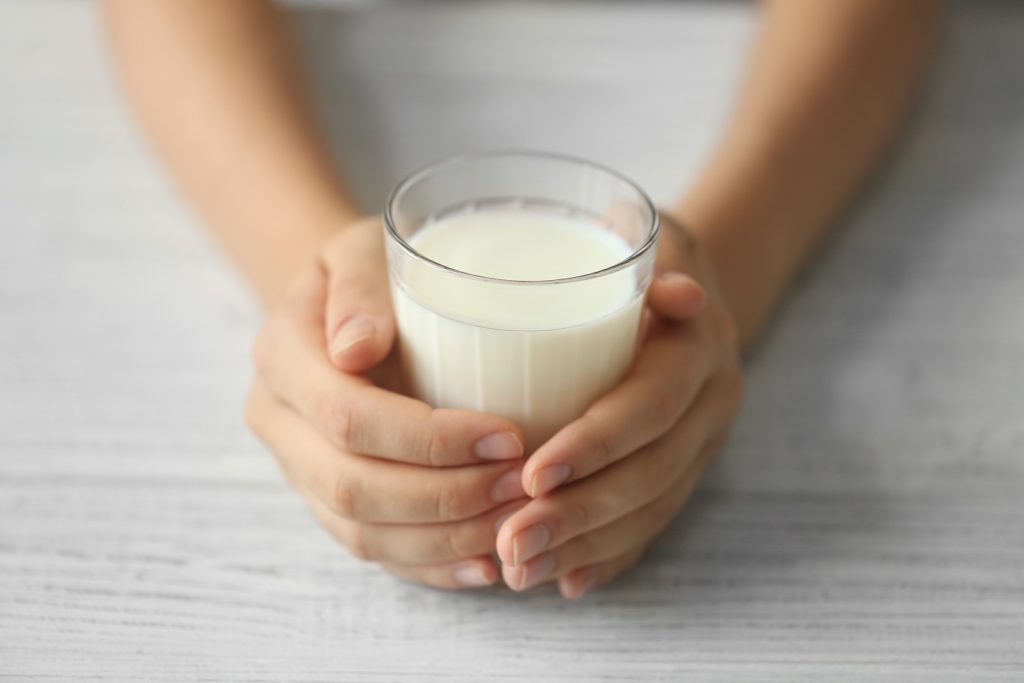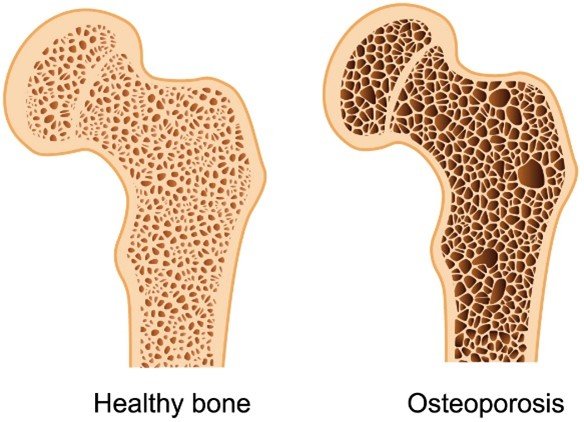
Let’s talk about calcium!
You’re likely familiar with the role of calcium and bone health: calcium is needed to build strong bones and teeth. But calcium is important for many other body functions, so it’s important to make sure your diet includes enough calcium to meet your needs.
Roles of Calcium in the Body:
- Bone health: If you don’t get enough calcium in your diet, your risk of osteoporosis can potentially be increased significantly. See below for more details on calcium, dairy and bone health.
- Hypertension and Cardiovascular Disease: Studies show that intakes of low-fat dairy products, calcium, and vitamin D were each inversely associated with risk of hypertension in middle-aged and older women, suggesting their potential roles in the primary prevention of hypertension and cardiovascular complications.
- Weight Management: The research is mixed, but some studies indicate that increased dairy intake can help to lower body weight.
How much do I need?
According to the 2020 – 2025 Dietary Guidelines for Americans, the following calcium recommendations will meet calcium needs:
Age |
Recommended Amount of Calcium |
# Servings of Milk,
|
| 9 – 18 | 1300 mg | 4 |
| 19 – 50 | 1000 mg | 3 |
| Women 51+ | 1200 mg | 4 |
| Men 71+ | 1200 mg | 4 |



 Osteoporosis
Osteoporosis
May is Osteoporosis Prevention Month and the perfect time to be reminded about the importance of bone health. Osteoporosis is a devastating disease marked by porous, weak bones. It’s called a ‘silent’ disease because it often presents no signs or symptoms, until you break a bone. It’s also called a ‘pediatric disease with geriatric outcomes.’ No matter how healthy you are, your body starts losing bone mass naturally after age 30 or earlier. The result can be the brittle, fragile bones and poor posture associated with osteoporosis.
Osteoporosis Myth Busting:
- Osteoporosis is a normal part of aging, right? No, it’s not. While bone mineral density does decline with age, bone loss can be slowed or stopped with proper nutrition and physical activity early in life and continuing as you age.
- Isn’t true that only women get osteoporosis? No, in fact many men are also affected by osteoporosis.
- I’m only in my 30’s, I don’t have to worry about osteoporosis yet, do I? Actually, osteoporosis is now occurring in younger and younger women, with doctors reporting they see patients in their late 20’s and early 30’s with bones that look like they are 80 years old.
Preventing Osteoporosis:
The good news is there are simple steps you can take to maintain bone health throughout your life. Follow these tips to help build strong bones and avoid fractures:
- Nourish Your Bones – for stronger bones, make sure you supply them with the needed nutrients. Calcium, vitamin D, phosphorous and magnesium are important nutrients for bone health, and they are all found in milk and dairy foods. Getting three servings of milk, cheese or yogurt each day can provide those important vitamins and minerals to help protect your bones.
- Be Active – Do weight-bearing and cardiovascular activities daily or at least several times a week. This is any type of activity that you do where you ‘push, pull, press or pound’ something. And it can be everyday activities; you don’t have to go to the gym. This will help stimulate your bones to become stronger and denser. Make sure it’s something you enjoy so you keep doing it!
- Start Early – The teen years are critical in getting those all-important nutrients and physical activity. Teens need four servings of milk, cheese or yogurt each day. Taking advantage of this window of opportunity to build strong bones in the teen years can have positive effects on bone density that can last a lifetime.




 Osteoporosis
Osteoporosis